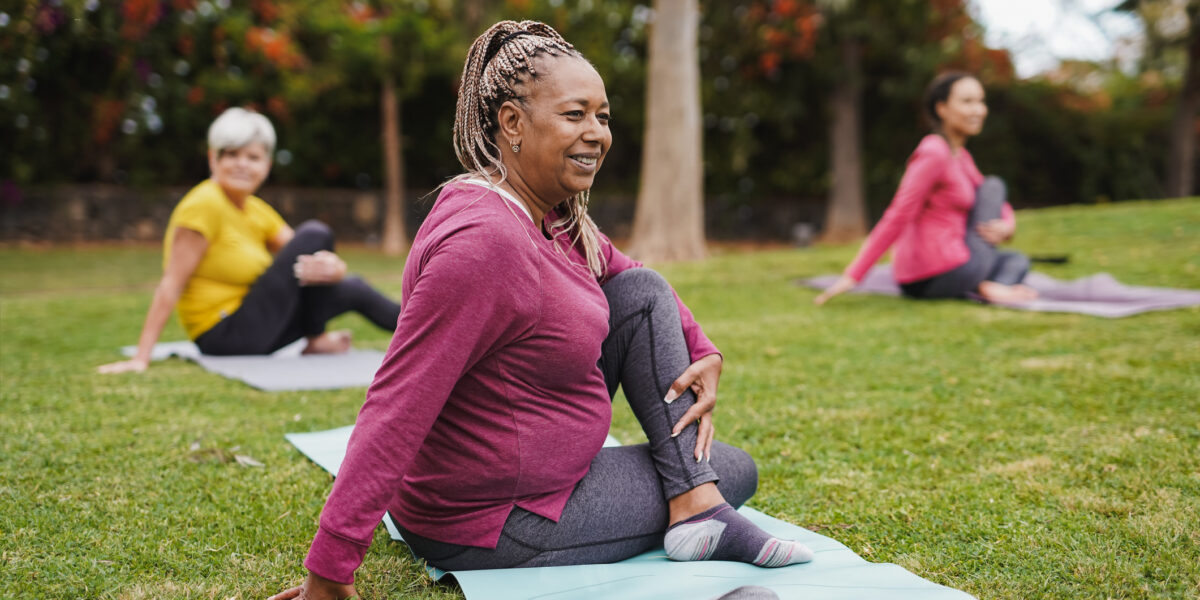If there were a medicine that was free, had no bad side effects, and would improve almost every aspect of your health, would you take it? There is such a thing, but it’s not a pill, and you don’t need a prescription. It’s physical exercise.
According to the Centers for Disease Control and Prevention, heart disease is the leading cause of death in the United States. You can reduce your risk of developing heart disease by managing risk factors like diabetes, high cholesterol, high blood pressure, obesity, physical inactivity, smoking and stress.
Exercise is the one thing that can improve all of these risk factors.
Five ways exercise works
- Exercise reduces blood sugar, which means your body may burn more sugar than usual during activity. Note: People with diabetes need to be aware of their blood-sugar levels before and after exercise. Always have a source of carbohydrates with you, such as juice, hard candy or glucose tablets. If you notice your blood sugar is regularly low (below 100 mg/dL) after exercise, consult your doctor to have your medication adjusted. Some people can even come off their medication with regular exercise.
- Exercise can affect your cholesterol levels in two ways: It helps lower triglycerides by up to 40% and it raises your HDL (“good” cholesterol) by 5-8 mg/dL. For cholesterol health, focus on frequency and the amount of time spent exercising to see improvement.
- Exercise benefits your blood pressure. During physical activity, your blood vessels dilate to allow increased blood flow to the exercising muscles. This effect last for a couple hours after exercise is done. With regular exercise, your blood vessels can learn to stay relaxed, thus lowering your blood pressure. Also, exercise helps to strengthen your heart. A stronger heart can pump more blood with less effort. If your heart can work less to pump, the force on your arteries decreases, lowering your blood pressure.
- Every little bit of increased activity helps to fight the weight battle. The only way to lose weight is to burn more calories than you take in. Keep in mind that you get calories not only from the food you eat, but also from what you drink. Eating healthy and exercising regularly can help you maintain your weight.
- Maintaining a healthy weight can also help control blood pressure, cholesterol and diabetes. The American College of Sports Medicine recommends to exercise at least 30 minutes per day, three to five days per week. Each hour spent watching TV is linked to an 18% increase in the risk of dying from cardiovascular disease, perhaps because that time is spent sitting down.
Small changes are positive changes
Purposeful cardiovascular exercise is a great way to improve your health, but making smaller changes throughout your day can also help:
- Take breaks to stretch.
- Walk to a coworker’s desk to ask a question.
- Take a walk over lunch so you’re energized for the afternoon.
- Park farther away.
- Use the steps instead of the elevator.
- Mix standing and sitting during the day.
- Rearrange your office so you have to get up more often.
- Be active while watching TV.
- Walk the mall.
Surprising benefits to exercise
It’s easier to quit smoking. Research shows that a regular exercise program can make it easier to quit smoking — the higher the level of activity, the higher the success rate. Smoking and exercise simply aren’t compatible.
Smoking reduces the amount of oxygen available in the body. Since oxygen plays a major role in energy production, even a minor depletion has an impact on physical performance and on how you feel.
Relieve stress. Exercise is an excellent stress reliever and can replace your dependence on cigarettes for stress relief. Physical activity helps to increase your brain’s feel-good neurotransmitters, called endorphins. Often called a runner’s high, other types of activities can create this same feeling. It can also have a meditation-like effect by helping you forget the day’s irritations. As you begin to regularly shed your daily tensions through movement and physical activity, you may find that this focus can help you remain calm and clear in everything you do.
Boost self-confidence. Regular exercise can increase self-confidence and lower the symptoms associated with mild depression and anxiety. Exercise also can improve your sleep. If there is one thing you can do to dramatically improve your health, it is exercise.



